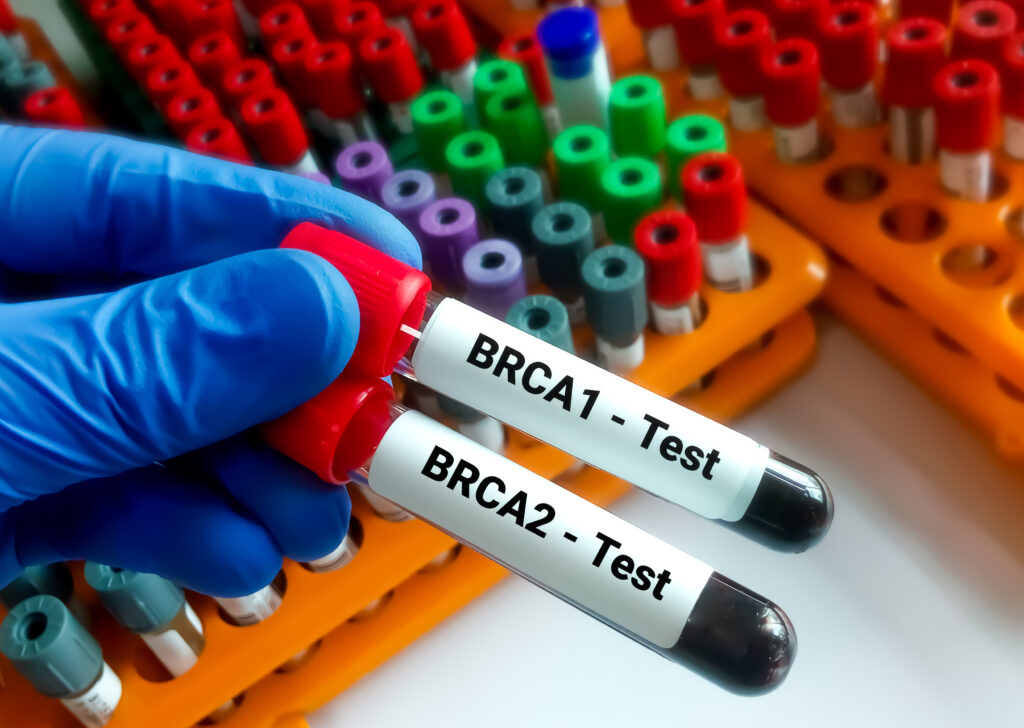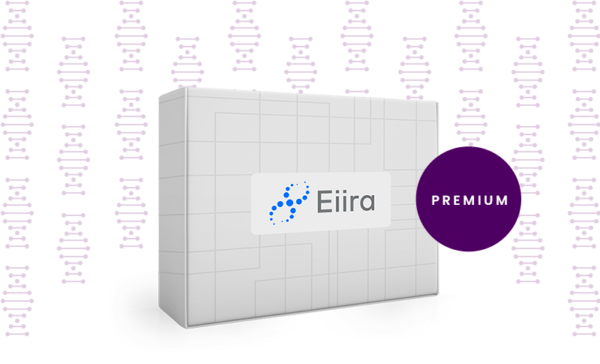
- What are the BRCA genes?
- How common are BRCA gene mutations?
- How is BRCA related to cancer?
- The importance of BRCA gene testing
- The process of BRCA gene testing
- The most common cancers linked to harmful BRCA variants
- Do I need to do anything to prepare for the test?
- How much does a BRCA test kit cost?
- What percentage of people with BRCA mutations get cancer?
- Are there any symptoms of BRCA gene mutation?
- What are BRCA1 and BRCA2?
- What do the BRCA genes do in your body?
- What is the difference between BRCA1 and BRCA?
What are the BRCA genes?
BRCA stands for the Breast Cancer gene. Everyone has two BRCA genes, BRCA1 and BRCA2. These genes don't cause breast cancer; they work to stop it. BRCA genes help to repair DNA breaks that lead to cancer and the growth of tumors. Hence, BRCA genes are known as tumor suppressor genes.
How common are BRCA gene mutations?
BRCA gene mutations are not very common. 1 in every 400 people are found to have BRCA gene mutations.
However, about 2% of the population of Ashkenazi Jewish descent carry a harmful variant in BRCA1 and BRCA2 genes.
How is BRCA related to cancer?
As mentioned above, the BRCA1 and BRCA2 genes do not cause cancer. They help to prevent cancer. But some mutations in the BRCA1 and BRCA2 genes change them so they don't work perfectly. Thus, if you inherit one of these mutations, you have an increased risk of developing breast cancer, ovarian and other cancers.
Not everyone with a mutation is at risk of developing cancer.
We inherit the BRCA1 gene and BRCA2 gene in one copy from each parent. Even if we inherit a BRCA mutation from one of our parents, we still have a regular copy of the BRCA1 or BRCA2 gene.
Cancer occurs when a second mutation occurs, which affects the unaffected copy of the gene resulting in BRCA genes no longer working right.
The second BRCA mutation will not be present throughout the person’s body instead it is present only in the cancer tissue.
The importance of BRCA gene testing
BRCA gene testing allows people with a family history of cancer to understand their genetic predisposition and take appropriate preventive measures.
The process of BRCA gene testing
BRCA gene testing involves analyzing a blood or saliva sample to detect specific mutations in the BRCA1 and BRCA2 genes.
Blood test: A blood sample is collected from your vein using a small needle. The collected blood is transferred into a tube or vial and given for the test.
Saliva test: You have to spit saliva into the tube as per the instructions provided and give it for testing.
Cheek Swab: A healthcare worker will use a small tool to gently rub the inside of your cheek to collect some cells.
Eiiras home cancer tests are available without a prescription. The process is simple. You just need to collect your saliva sample and send it back in the envelope provided. You need to fill in your family history online to map your risk of hereditary cancer. You can get an assessment of your risk for the 10 most common cancers.
What are the most common cancers linked to harmful BRCA variants?
The most common cancers linked to harmful BRCA variants are Breast cancer, Ovarian cancer, Pancreatic cancer, and prostate cancer.
Do I need to do anything to prepare for the test?
You don’t need any preparations for the blood test. You just have to check with your healthcare provider.
For the saliva test, you have to follow the instructions provided with the kit.
For the cheek swab, you may need to rinse your mouth before taking the test.
You need to check with your healthcare professional as to which test will be suitable for you and follow their guidance.
How much does the BRCA test kit cost?
The price for a BRCA gene test at Eiira depends on which test you choose from Eiira Classic and Eiira Premium. Eiira Classic costs 4990 SEK, and Eiira Premium costs 9990 SEK.
You get assessed for the risk of 10 common cancers in both the Genetic testing kits. Whereas, in the Eiira premium kit, you get lifetime updates on what future science can offer for health prevention.
What percentage of people with BRCA mutations get cancer?
Likely, 45% to 80% of women who have inherited BRCA mutation are at a higher risk of developing breast cancer, and 10% to 46% of women with BRCA mutation have a chance of developing ovarian cancer in their lifetime.
Are there any symptoms of BRCA gene mutation?
There are no specific symptoms of BRCA gene mutations. However, having a family history of cancer-related to harmful BRCA1 or BRCA2 variants is a sign that there may be such a variant in your family.
What do the BRCA genes do in your body?
The BRCA genes gives instructions for making proteins that work as tumor suppressors. These proteins help prevent cells from growing and dividing too fast or without control.
The BRCA proteins help to repair damaged DNA. In the center of many types of normal cells, the BRCA proteins interact with several other proteins to repair the DNA. There are various reasons for these breaks, either natural or medical radiation or other environmental exposures. They also occur when chromosomes exchange genetic material while preparing for cell division. In this process, BRCA genes play a vital role in maintaining the balance of the cell's genetic information.
What is the difference between BRCA1 and BRCA2?
The main difference between BRCA1 and BRCA2 genes is their location and some of the cancer risks they are associated with. BRCA1 and BRCA2 are both genes involved in repairing damaged DNA, which helps prevent the development of certain cancers, especially breast and ovarian cancers. Here are the key differences:
Location: BRCA1 is located on chromosome 17, while BRCA2 is on chromosome 13. They are separate genes on different chromosomes.
Cancer risks: Mutations in BRCA1 strongly link to breast and ovarian cancers, but they can also increase the risk of other cancers. BRCA2 mutations also increase the risk of breast and ovarian cancers as well as male breast cancer and certain other cancers, like prostate cancer and pancreatic cancer.
Overall prevalence: BRCA1 mutations are more common in some populations, while BRCA2 mutations are more prevalent in others. The specific mutations can vary by ethnicity and family history.
In summary, BRCA1 and BRCA2 genes are related but have distinct roles and risks when it comes to cancer. It's important to understand these differences, especially if there's a family history of cancer, as they can influence a person's risk and healthcare decisions.
References:
- National Cancer Institute (2021). BRCA1 and BRCA2: Cancer risk and genetic testing.
- American cancer society (2021). Breast cancer risk factors you cannot change
- National Library of Medicine. BRCA1 and BRCA2 associated hereditary Breast and Ovarian cancer

